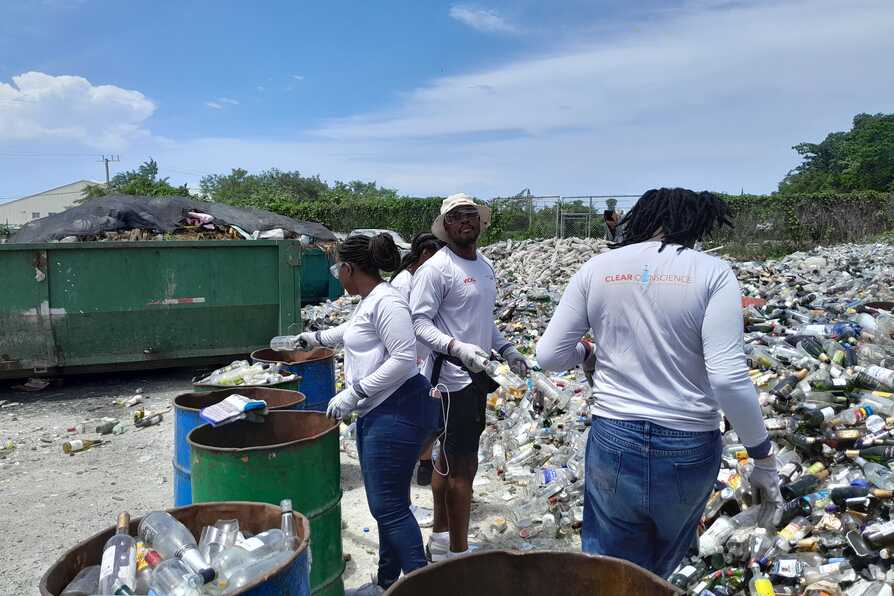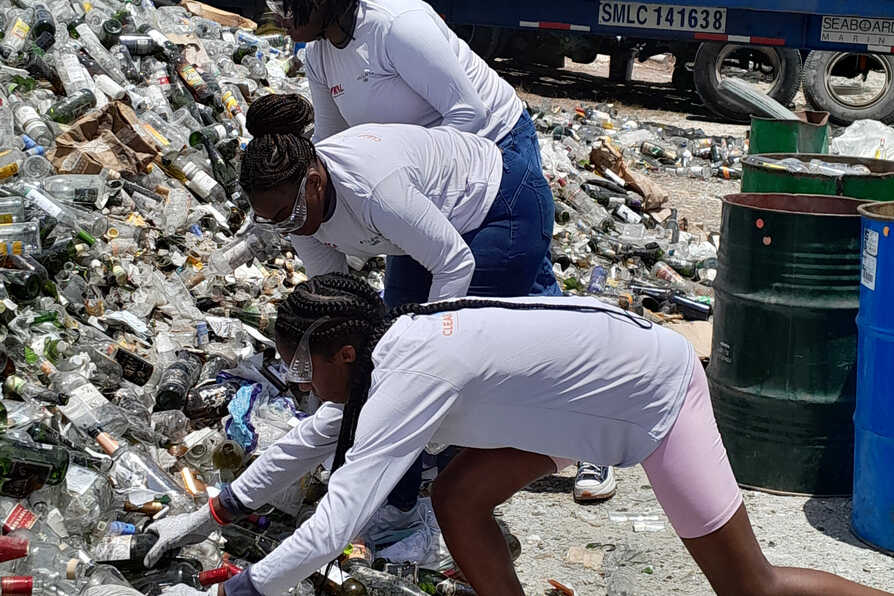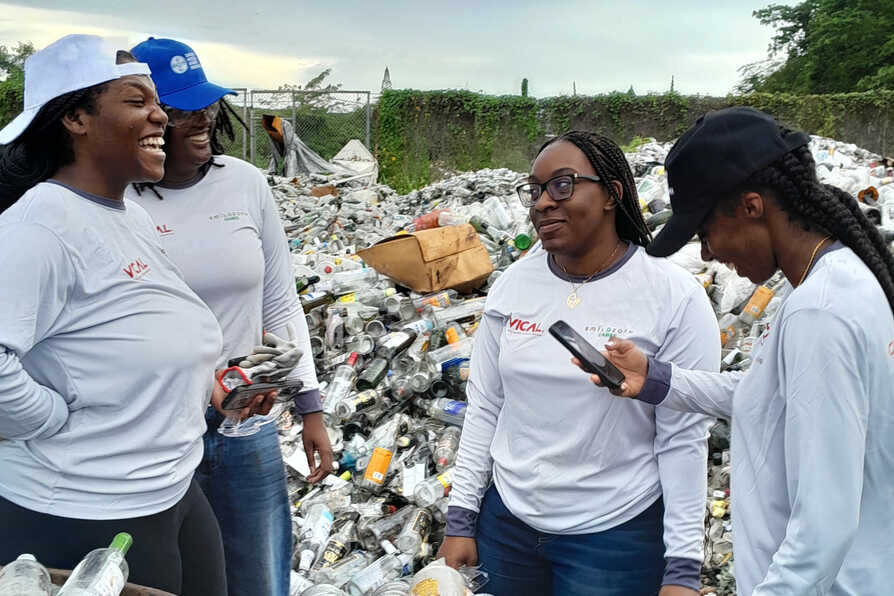
The absence of a recycling culture in Jamaica leads to a considerable pile-up of solid waste in local landfills. This results in the accumulation of thousands of metric tonnes of recyclable materials, occupying valuable space in already limited landfill areas. A 2022 Waste Characterisation Study conducted by the Development Bank of Jamaica, revealed that the country generates around 52,000 tonnes of glass waste and 248,000 tonnes of plastic waste annually, with a substantial portion of that waste generated by the tourism industry. Plastic recycling has been encouraged in recent years but remains a challenge. Glass poses a pressing environmental concern, since it is slow to decompose and occupies valuable space in the landfills.
Through close collaboration with key stakeholders in the tourism industry, Destination Zero Waste Jamaica creates a robust network for the collection of glass and plastic materials. It also puts in place initiatives to raise public awareness and establishes a dedicated recycling and upcycling centre. This multi-faceted strategy aims to substantially decrease the volume of waste ending up in the landfill and instil a sense of environmental stewardship in young people. It also trains local people from economically disadvantaged communities in upcycling activities, enhancing livelihoods and contributing to overall environmental sustainability.





